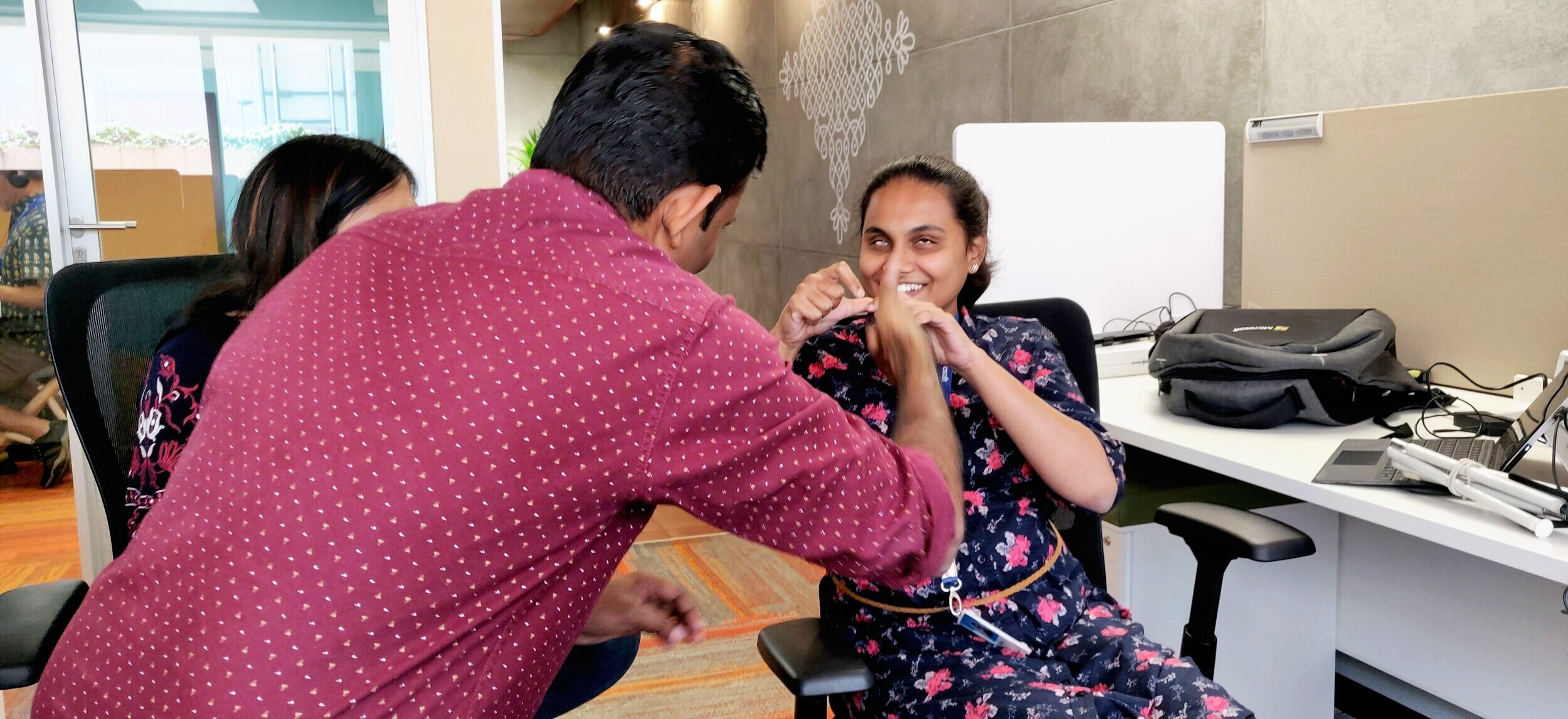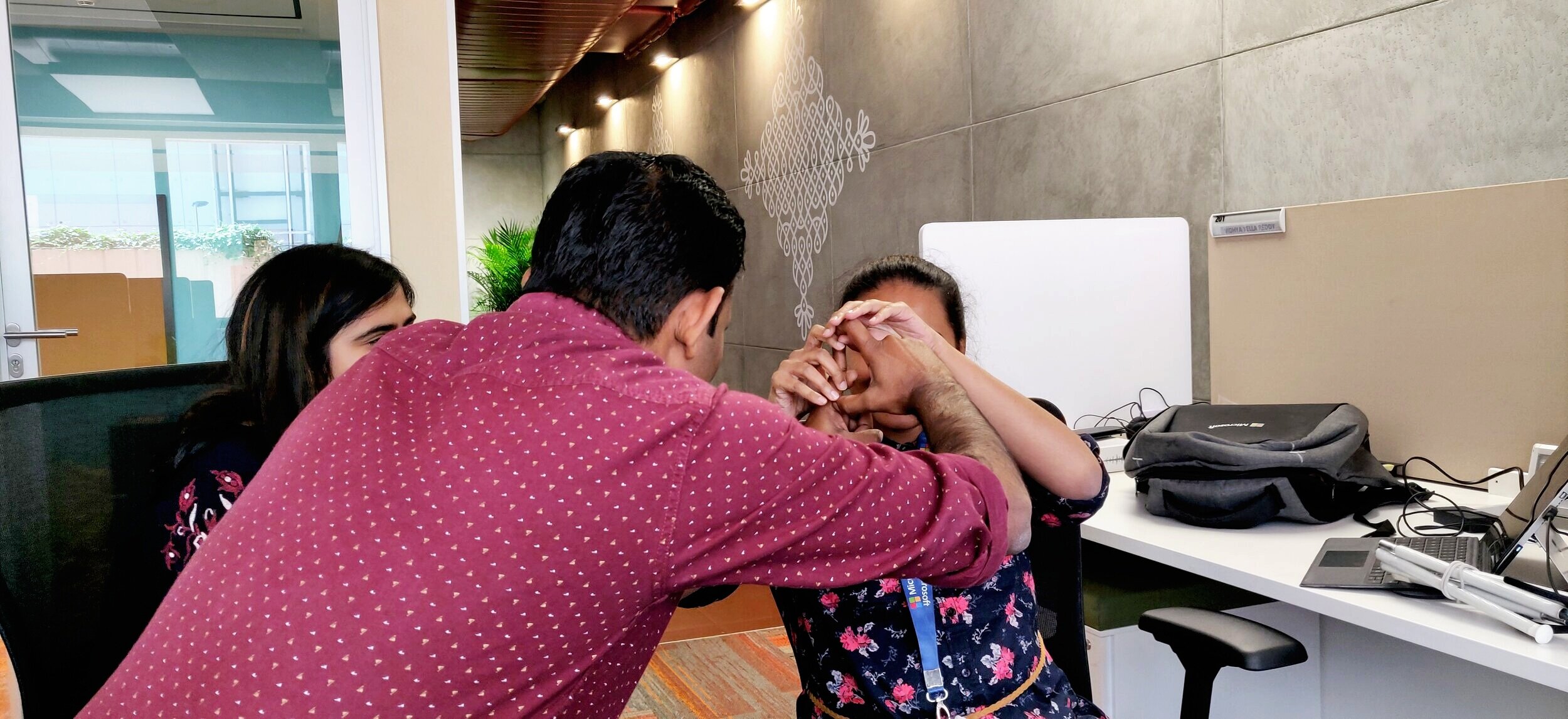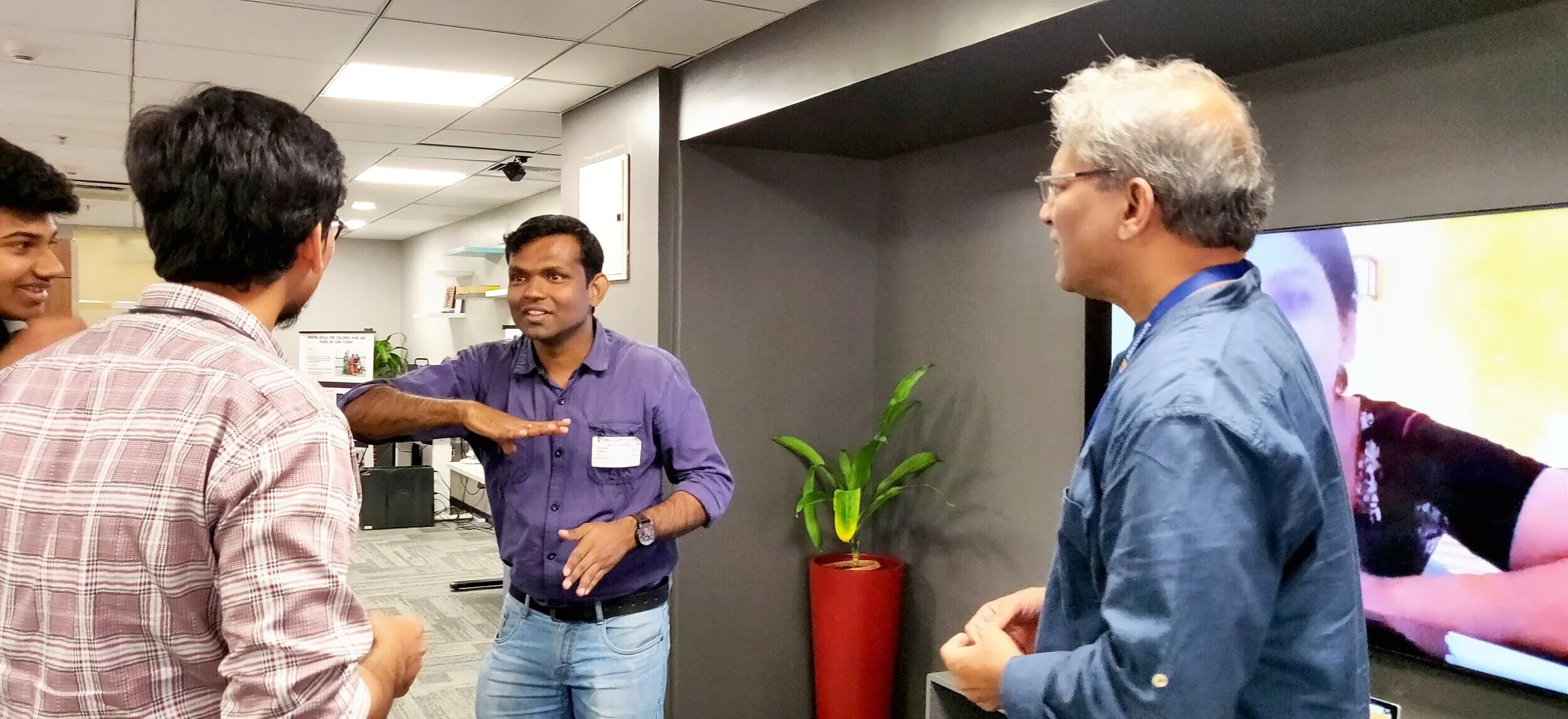Spoken Language Literacy
Unique Challenges
Deaf and hard of hearing children in India have unique challenges. Many of the children who are born to hearing parents lose valuable time in terms of language development since detection of deafness at birth is still not a standard practice. The determination of deafness is delayed and even denied and by the time active intervention is sought, the child has grown beyond the first 2 years so critical to language development without any linguistic stimuli.
Many hearing parents attempt to direct the child to lip reading and speech therapy in the hope that they can be trained to speak. Introduction of sign language is hence quite delayed. Fortunately for deaf children of deaf parents, sign language is available from birth and hence have good linguistic development with ISL as their primary language. However, both types of children have difficulties acquiring language skills in a second language, usually English.
Thus it is documented that in language skills (and other academic skills) most DHH children lag quite a lot with their hearing peers, sometimes of the order of years by the time they are even in primary school.
For language skills to develop in DHH children, they need to have support for their primary language, ISL, at home and at school.
The shortage of ISL speakers in India is a major factor in the actual lack of such support. The shortage of trained and certified ISL interpreters is another glaring bottleneck.
We hope to address both of these challenges using a Ludic Approach. For example, here is a video of a Twinkle Twinkle signed with ISL can get children interested in picking up basic literacy.
In following the maxim, 'Nothing about us without us' we started by working closely with Deaf ISL instructors and Deaf students of the National Institute for Speech and Hearing (NISH), Thiruvananthapuram, right from the start of this project. One of the key outcomes of this work over the past year is the App Signoot! Other aspects of this ongoing collaboration are described in various blogs:
Application of LDA methodology for Deaf and Hard of Hearing Community
Exploration of various games played by DHH community and their challenges



